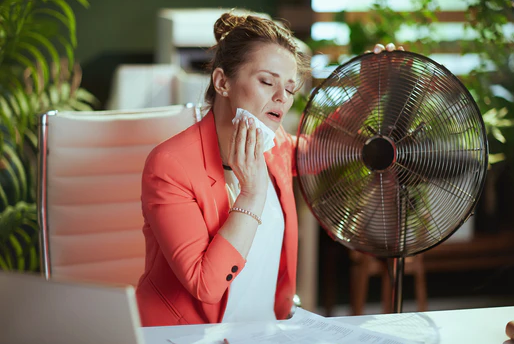
Menopause is a natural phase in a woman's life, marking the end of her reproductive years. While it's a significant milestone, the associated symptoms can often be tough to manage without the right tools. The hormonal changes that occur during menopause can lead to a range of physical and emotional discomforts, including hot flashes, mood swings, and sleep disturbances. Fortunately, there are various strategies and lifestyle changes that can be made to provide menopause relief and help women manage the symptoms of menopause.
It’s important to understand that Menopause, as a natural biological process, isn’t something that can be avoided. Typically, menopause occurs between the ages of 45 and 55 although it can happen earlier or later for some women depending on their health status. It marks the cessation of menstruation and a decline in the production of hormones like estrogen and progesterone. These hormonal changes are responsible for the symptoms women experience during this phase of life.
Here are some of the most common symptoms of Menopause…
- Hot Flashes: Hot flashes are one of the most common and bothersome symptoms of menopause. They involve a sudden feeling of intense heat, often accompanied by sweating and a rapid heartbeat.
- Night Sweats: Night sweats can disrupt sleep and lead to fatigue. They occur during the night and can leave some women drenched in sweat.
- Mood Swings: Hormonal changes can impact mood, leading to irritability, anxiety, and even depression in some cases.
- Sleep Disturbances: Sleep problems are common during menopause. Difficulty falling asleep or staying asleep can contribute to overall discomfort and fatigue.
- Vaginal Dryness: The decrease in estrogen levels can lead to vaginal dryness and discomfort during sexual intercourse.
- Bone Health: Lower estrogen levels also increase the risk of osteoporosis, making bone health an important consideration during menopause.
Here’s are some strategies to decrease the severity of Menopause.
Diet
Colourful fruits and vegetables contain antioxidants and phytoestrogens that can combat the drop in estrogen which is associated with increased oxidative stress (estrogen is an established antioxidant in the body). Specifically, foods like flax, tempeh, natto and turmeric can make naturally declining estrogen levels feel less severe.
Strength Training
Regular exercise, and stress management techniques like yoga or meditation can help with managing symptoms with menopause. Resistance training in particularly is important to combat the risk of osteoporosis as declining estrogen levels can lead to lowered bone density. Taking the body through strength-based exercises can combat this by stimulating new bone mineral content (also known as an osteogenic response).
What supplements should you take?
The newest addition to our supplement line is a product called Meno-Thrive. Meno-Thrive combines, Eucommia and Mung Bean to help manage symptoms and discomfort associated with perimenopause and menopause including hot flashes, night sweats and mood swings in just 7 days. Meno-Thrive also includes Pomegranate Seed Oil which contains flavonoids and punicic acid that has numerous nutritional benefits. Studies have shown pomegranate seed oil helps reduce the number of hot flashes each day by almost 40.2%. In another study, symptoms of vaginal dryness were reduced by 35.3%
Omega 3 Fatty Acids have also shown to support hormone production and can have beneficial effects on cognition, depression, and anxiety.
Menopause is a natural phase of life that brings about significant changes in a woman's body. While it can be challenging, it's important to remember that there are various options for relieving menopausal symptoms. Finding the right combination of strategies, whether through lifestyle changes, or alternative treatments, can help women navigate this transition with greater comfort and improved quality of life. It's important to work closely with your healthcare practitioner to determine the most suitable approach for your individual needs.
Antioxidants: The role of oxidative stress in menopause
Omega 3’s and Menopause: n-3 PUFA Improve Emotion and Cognition during Menopause: A Systematic Review
Pomegranate Seed Oil References
Auerbach et al (2012) Menopause 19(4): 426-432;
Huber et al (2017) Altern Ther 23(2): 28-34
Fast relief of menopausal symptoms in just 7 days Reference:







